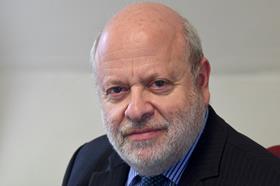I left Brussels early in the morning last week, avoiding my usual route because farmers were blockading the various points I normally pass through. I could hear their honking horns as I made my way to the metro. As the train doors opened at stations under those same spots, I could again hear the honking horns coming from the streets above. This was at 6.30 am.

There was an EU summit the same day. Although agriculture was not on the agenda, the proximity of the honking tractors was impossible to ignore. The president of the European Commission praised the farmers’ resilience, and said she was working with the member states to address their immediate challenges. The president of the European Parliament, outside whose building the tractors were also camped, said: ‘We see you and we hear you’. The French president claimed that he had prevented the immediate signature of the Mercosur trade agreement, which was one of the farmers’ grievances.
I happened to be coming to a Law Society meeting where there were rightful congratulations about the Society’s win against the previous lord chancellor’s irrational decision in not granting solicitors the full percentage increase in criminal legal aid fees recommended by an independent review. It is a famous and well-deserved legal victory. It took considerable time and money to achieve because the courts were the process used.
It is worth reading the witness evidence from criminal legal aid solicitors quoted in the court judgement. The stories they told are as heartbreaking as those told by farmers standing by their tractors while their colleagues threw eggs or chanted slogans in the background. Here is just a portion.
One gave an example of legal work costing £876.79. Because of the calculation template where nothing can be charged between the amount of the fixed fee and the amount of the escape clause, the lawyer is able to reclaim only £296.66 out of £876.79 (a third of the fee), meaning that £580.13 worth of work is undertaken for free. We are not talking about a rich law firm here, which may be able to lose two-thirds of its fee once or twice, but a firm which reports that it had to reduce office space by 50% in order to survive.
Another witness said: ‘In the past 3-5 years, I had a nervous breakdown due to this job and was again prescribed anti-depressants for over a year, as well as sleeping tablets. I contemplated suicide. My wife wanted me to walk away as she thought I would kill myself. I couldn’t walk away as I am a 50% owner of the firm and have responsibilities to my staff and clients. I still have panic attacks and migraines over the finances of the firm and the work that we have to do just to keep the firm afloat.’
Another left home at 8 am to go to court, had eight duty calls between 2pm and past midnight the following morning. Since a conflict of interest arose in relation to the last of the calls, she would not be paid for it. She did not go to sleep until 2.30am and was awake by 6.30am, to work flat out until about midnight, doing a mix of duty calls and other work. Her duty slot officially ended at 1pm that day, and so overran by about 11 hours. We know that other lawyers are sometimes required to pull all-nighters, but their pay rates are different.
The farmers’ tractors carried slogans like ‘No farmers, no food’ (written in English, to be widely understood). We could say ‘No lawyers, no justice’ – or ‘no rule of law’ or indeed ‘no society’. The fact that criminal legal aid lawyers are the ones involved makes the truth of such slogans more pointed.
The Bellamy independent review on criminal legal aid was published in November 2021. The court judgement to support its implementation was published over two years later, after a period in which inflation has made a mockery of the very basic raises that the original review recommended. Using the justice system has proved a very blunt tool to right the wrongs faced by criminal legal aid solicitors - although of course the right path for the Law Society to follow.
We don’t yet know how the government will respond. It was a judicial review of the original irrational decision, and the government has several options available.
The tools of our profession do not permit us to block streets with them. The ethics of our profession place strong limits on our methods of protest. The variety of our profession means that it is only a small but crucial minority who face these problems.
But in the light of the farmer demonstrations, the question remains: would lawyers’ tractors have achieved a quicker and more effective result?
Jonathan Goldsmith is Law Society Council member for EU & International, chair of the Law Society’s Policy & Regulatory Affairs Committee and a member of its board. All views expressed are personal and are not made in his capacity as a Law Society Council member, nor on behalf of the Law Society































No comments yet